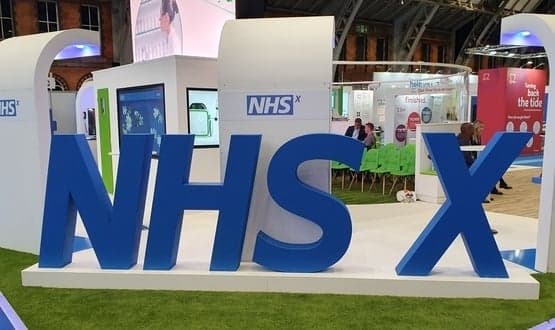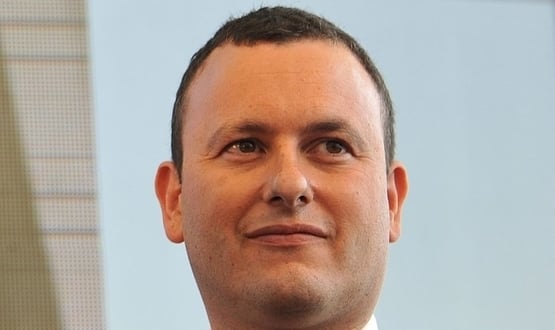NHSX launches Tech Plan to consult on what the unit should be doing
- 27 February 2020

NHSX has launched its Tech Plan setting out its vision for how technology will support the implementation on the Long Term Plan.
The newly developed plan consists of five phases of consultations, which will be rolled out from now until the summer, building on the mission statement the organisation launched with in summer 2019.
Phase 1, launched today, sets out NHSX’s vision for the future in which the NHS would become a “truly data-driven system” which can constantly optimise the care it gives through data, analytics and research.
The consultation, which repeats many of the technology goals envisioned in the Long Term Plan published in January 2019, states that while “significant progress” has been made in some parts of the health and care system, a gap exists between the promise of technology and its “lived reality”.
There are variable levels of digitisation among providers; variable level of tech confidence among clinicians and other healthcare workers; data is not flowing safely across the system; scaling research and innovation remains a challenge; and patients are struggling to see their own records despite increased uptake of the NHS App.
Speaking at The Nuffield Trust Summit 2020 today, health secretary Matt Hancock announced the launch of the consultation and encouraged everyone, from healthcare workers to patients, to provide feedback to ensure NHSX is taking the right direction.
The solution
NHSX has set ambitious measures of success in its vision document, based on clinicians, social care workers, citizens, leaders and managers having the right technology to improve care, as well as tech professionals feeling valued within the NHS.
The organisation has listed the next steps in achieving each of it’s 2019 mission statements, building on the work it has done in the past year.
Digital staff identity will be introduced to reduce the burden on workforce; the integration of digital products that support the NHS App will give people tools to access services directly; developing core record standards and supporting interoperability standards will help ensure people’s information can be safely accessed wherever it’s needed.
On top of that, a next generation Electronic Prescription Service will be introduced to improve safety; and interoperable digital solutions will be provided to all community care providers to improve the uptake of digital technology.
To achieve this NHSX has drafted a new, more cohesive Standard for Digital Health Technologies, allowing innovators and commissioners to identify what standards a product needs to have met to be safely used by the system.
“Alongside, we are building a platform to support external assessors in their assurance of these technologies (against the new Standard) providing open, robust APIs to support the distribution of these assured products and services,” the consultation document states.
“Linked in with procurement frameworks such as the HSSF (Health Systems Support Framework), this platform will provide providers and commissioners with a single channel to lookup companies and products to view the status of their assessment.”
NHSX confirmed it is continuing its work towards establishing open standards for providers and innovators to build upon.
The standards were originally due to be published shortly after the organisations 2019 launch, but are now expected to be made available in early 2020/21.
To lead the development of these standards NHSX will soon be appointing a Director of Standards and Interoperability, according to the documents.
The document reiterates multiple directions NHSX has previously committed to, including setting out “what good looks like”, establishing who should pay for what, and how we should be sharing best practice, noting the Global Digital Exemplar blueprint programme.
NHSX is currently working with providers to establish if a minimum spend on technology should be mandated.
The organisation is seeking to actively engage with people across the health and care system, providing the opportunity for patients, health and care professionals and other frontline staff, researchers, managers and boards and other stakeholders to shape our work.
You can view the vision documents and the tech plan here.
[themify_box icon=”info” color=”gray”]
NHSX’s five phases of the Tech Plan
Phase 1 – publishing this vision, to set out what we want to achieve, and showing how tech will help deliver the NHS Long Term Plan.
Phase 2 – will focus on our objectives and missions – we want to check that they still provide a comprehensive framing for what we want to achieve. We will set out what we’ve done since NHSX was established, what we’ll be doing in 2020/2021 and what the 3-5 year view is on each mission
Phase 3 – will be about enablers, that help the health and care system to deliver excellent care enabled by technology. We will work with colleagues across health and care to define what good and outstanding in digital transformation look like for different types of provider as well as for local systems, both now and our best guess for 2024. We will set out who should pay for what. And we will say more about our approach to standards and architecture.
Phase 4 – covers our deliverables, up to the end of March 2024. This will cover areas where we might need to develop standards, guidance or policies, areas where we might need to establish funding routes or continue to provide existing ones and – only where it really makes sense – may also include products or services delivered centrally.
Phase 5 – will be used to define the ways that we will measure our success, both in making progress against digital maturity across the health and care system and also in measuring the impact it is having for patients and our workforce.
[/themify_box]





1 Comments
1. I believe that a digital maturity assessment should be carried out and this related to any spend. Also we tend to talk about Digital Maturity at Trust level but we need to ensure that the local Health economy is measured this will ensure that we focus on the weakest link within the economy and funding can be related to improving this.
2. Within an integrated care Community I hear that there are license issues which prohibits different services from interacting and therefore patient data remains in a Silo
3. We should be more Consumer focussed and improve business digital transformation within NHS Trusts for example I can receive appointment reminders from my GP, Dentist and Optician BUT not from my NHS Trust they still use appointment letters which is an increase in cost and not environmentally friendly.
Comments are closed.